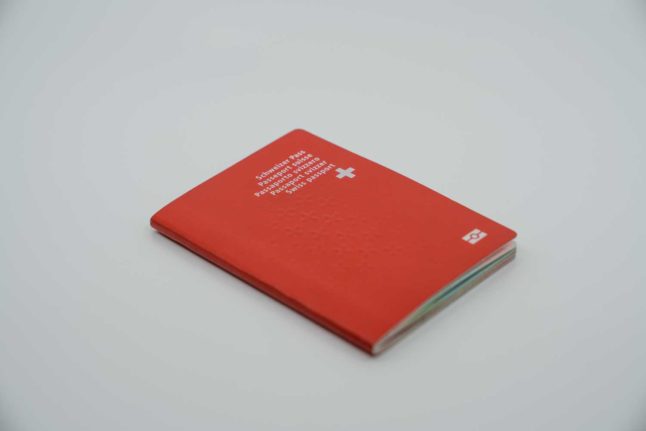As part of a draft revision of the law on foreigners and integration, the Federal Council is proposing to reduce social assistance paid to nationals of third countries.
“During the first three years following the granting a residence permit, the rate of social assistance should be lower than that applied to the native population”, authorities said.
The rationale of the plan is to “create incentives for better work integration”.
The proposal has been developed by Justice Minister Karin Keller-Sutter.
The project was in a consultation phase until May 3rd, after which it will be presented to Swiss parliament.
The cut would save an estimated three million francs per year nationwide.
What does the proposal say?
Under the plan, the amount of social assistance will be reduced in the first three years for foreigners in Switzerland, provided they come from outside the EU.
The social aid paid to non-Europeans is already relatively low, with amounts varying from CHF600 to CHF1,000 depending on the canton.
READ MORE: How Switzerland wants to cut welfare and boost integration for non-EU citizens
Anyone who has a ‘C’ category residency permit and who receives social assistance will lose it more easily than under the previous scheme.
The law will also see a more defined set of requirements for integration for temporarily admitted persons.
In addition, the Federal Statistical Office should regularly report accurate figures of how many foreigners are receiving social assistance.
In addition, the State Secretariat for Migration (SEM) must approve the extension of residency permits of individuals who incur “significant” social welfare costs.
Keller-Sutter will also draw up a uniform set of recommendations for social assistance for foreigners for the cantons.
What are people saying?
While the proposal has not yet been finalised, the idea has sparked heavy criticism, while some foreigners are fearful of what it might mean for them should the assistance be lowered.
A spokesperson for the Social Democrats told Swiss tabloid Blick a cut would be “unworldly and cynical”, while the Greens say such a move would be unconstitutional.
The proposal sparked criticism from the Swiss Workers’ Welfare Organisation, whose spokesperson, Caroline Morel, pointed out that “in social assistance, the amount of support benefits is calculated according to needs and not the length of stay in Switzerland”.
“We oppose the downgrading of the residence status of foreigners who receive social assistance. We also oppose lower social assistance rates for the first three years, as these are inhumane and hinder professional and social integration.”
“It is clear that these tightening measures will primarily affect vulnerable people such as children, people with special needs, and women”, she added.
The Swiss People’s Party on the other hand have spoken out in favour of the changes, saying it would help curb increases in social assistance contributions.



 Please whitelist us to continue reading.
Please whitelist us to continue reading.
Member comments